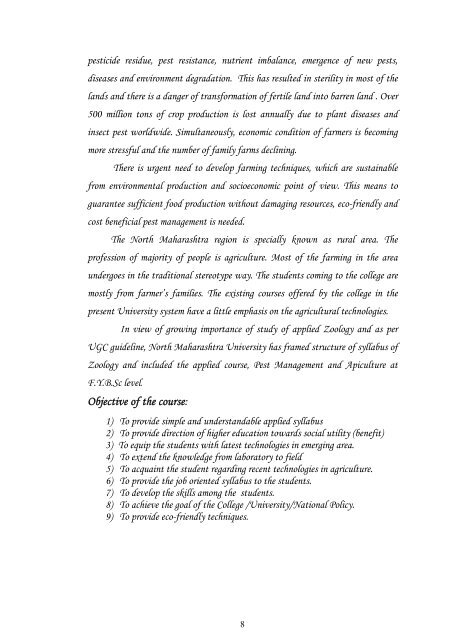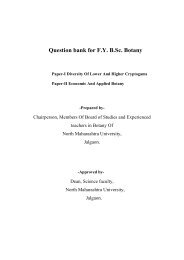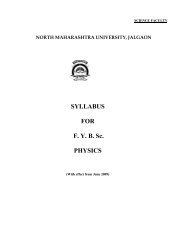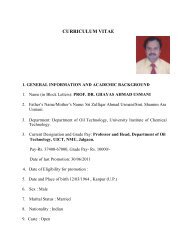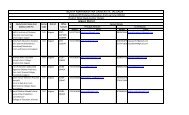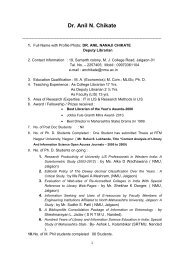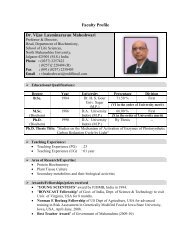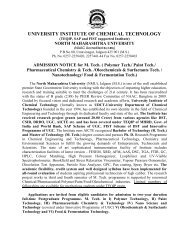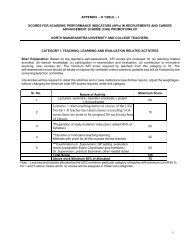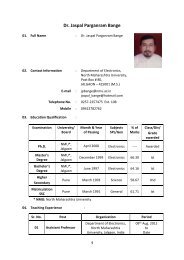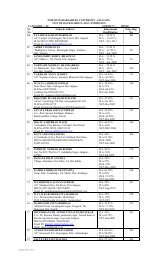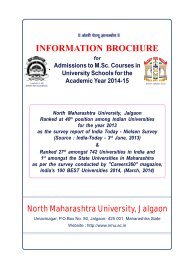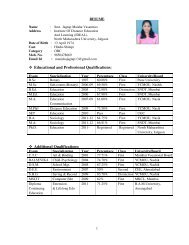FYB Sc - North Maharashtra University
FYB Sc - North Maharashtra University
FYB Sc - North Maharashtra University
You also want an ePaper? Increase the reach of your titles
YUMPU automatically turns print PDFs into web optimized ePapers that Google loves.
pesticide residue, pest resistance, nutrient imbalance, emergence of new pests,<br />
diseases and environment degradation. This has resulted in sterility in most of the<br />
lands and there is a danger of transformation of fertile land into barren land . Over<br />
500 million tons of crop production is lost annually due to plant diseases and<br />
insect pest worldwide. Simultaneously, economic condition of farmers is becoming<br />
more stressful and the number of family farms declining.<br />
There is urgent need to develop farming techniques, which are sustainable<br />
from environmental production and socioeconomic point of view. This means to<br />
guarantee sufficient food production without damaging resources, eco-friendly and<br />
cost beneficial pest management is needed.<br />
The <strong>North</strong> <strong>Maharashtra</strong> region is specially known as rural area. The<br />
profession of majority of people is agriculture. Most of the farming in the area<br />
undergoes in the traditional stereotype way. The students coming to the college are<br />
mostly from farmer’s families. The existing courses offered by the college in the<br />
present <strong>University</strong> system have a little emphasis on the agricultural technologies.<br />
In view of growing importance of study of applied Zoology and as per<br />
UGC guideline, <strong>North</strong> <strong>Maharashtra</strong> <strong>University</strong> has framed structure of syllabus of<br />
Zoology and included the applied course, Pest Management and Apiculture at<br />
F.Y.B.<strong>Sc</strong> level.<br />
Objective of the course:<br />
1) To provide simple and understandable applied syllabus<br />
2) To provide direction of higher education towards social utility (benefit)<br />
3) To equip the students with latest technologies in emerging area.<br />
4) To extend the knowledge from laboratory to field<br />
5) To acquaint the student regarding recent technologies in agriculture.<br />
6) To provide the job oriented syllabus to the students.<br />
7) To develop the skills among the students.<br />
8) To achieve the goal of the College /<strong>University</strong>/National Policy.<br />
9) To provide eco-friendly techniques.<br />
8


